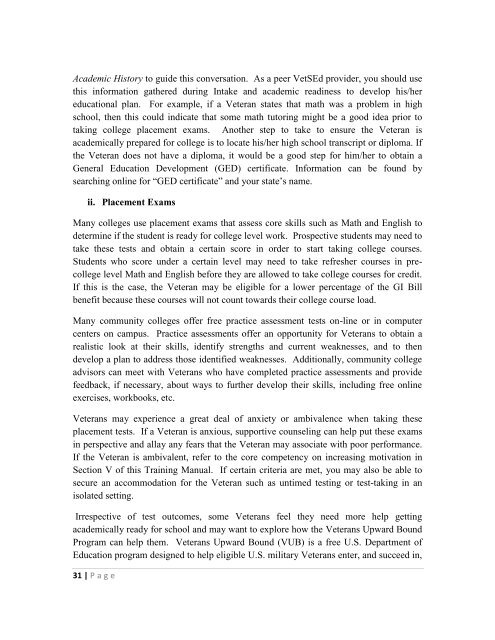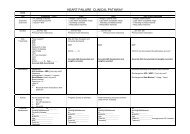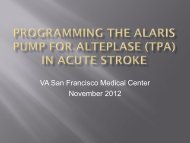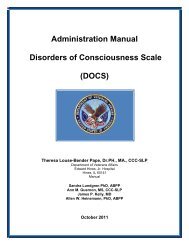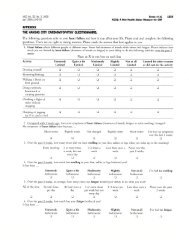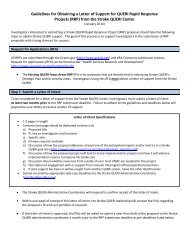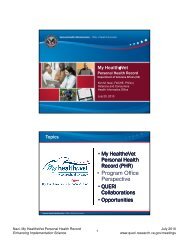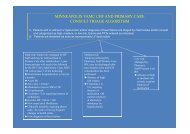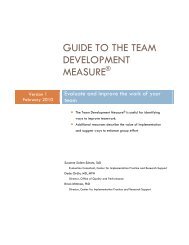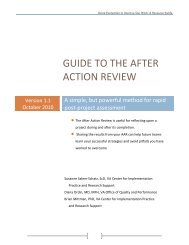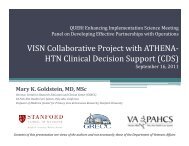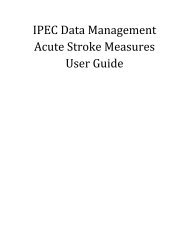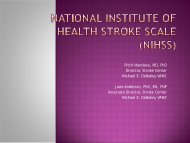The Veteran Supported Education Service Treatment Manual: VetSEd
The Veteran Supported Education Service Treatment Manual: VetSEd
The Veteran Supported Education Service Treatment Manual: VetSEd
You also want an ePaper? Increase the reach of your titles
YUMPU automatically turns print PDFs into web optimized ePapers that Google loves.
Academic History to guide this conversation. As a peer <strong>VetSEd</strong> provider, you should use<br />
this information gathered during Intake and academic readiness to develop his/her<br />
educational plan. For example, if a <strong>Veteran</strong> states that math was a problem in high<br />
school, then this could indicate that some math tutoring might be a good idea prior to<br />
taking college placement exams. Another step to take to ensure the <strong>Veteran</strong> is<br />
academically prepared for college is to locate his/her high school transcript or diploma. If<br />
the <strong>Veteran</strong> does not have a diploma, it would be a good step for him/her to obtain a<br />
General <strong>Education</strong> Development (GED) certificate. Information can be found by<br />
searching online for ―GED certificate‖ and your state‘s name.<br />
ii. Placement Exams<br />
Many colleges use placement exams that assess core skills such as Math and English to<br />
determine if the student is ready for college level work. Prospective students may need to<br />
take these tests and obtain a certain score in order to start taking college courses.<br />
Students who score under a certain level may need to take refresher courses in precollege<br />
level Math and English before they are allowed to take college courses for credit.<br />
If this is the case, the <strong>Veteran</strong> may be eligible for a lower percentage of the GI Bill<br />
benefit because these courses will not count towards their college course load.<br />
Many community colleges offer free practice assessment tests on-line or in computer<br />
centers on campus. Practice assessments offer an opportunity for <strong>Veteran</strong>s to obtain a<br />
realistic look at their skills, identify strengths and current weaknesses, and to then<br />
develop a plan to address those identified weaknesses. Additionally, community college<br />
advisors can meet with <strong>Veteran</strong>s who have completed practice assessments and provide<br />
feedback, if necessary, about ways to further develop their skills, including free online<br />
exercises, workbooks, etc.<br />
<strong>Veteran</strong>s may experience a great deal of anxiety or ambivalence when taking these<br />
placement tests. If a <strong>Veteran</strong> is anxious, supportive counseling can help put these exams<br />
in perspective and allay any fears that the <strong>Veteran</strong> may associate with poor performance.<br />
If the <strong>Veteran</strong> is ambivalent, refer to the core competency on increasing motivation in<br />
Section V of this Training <strong>Manual</strong>. If certain criteria are met, you may also be able to<br />
secure an accommodation for the <strong>Veteran</strong> such as untimed testing or test-taking in an<br />
isolated setting.<br />
Irrespective of test outcomes, some <strong>Veteran</strong>s feel they need more help getting<br />
academically ready for school and may want to explore how the <strong>Veteran</strong>s Upward Bound<br />
Program can help them. <strong>Veteran</strong>s Upward Bound (VUB) is a free U.S. Department of<br />
<strong>Education</strong> program designed to help eligible U.S. military <strong>Veteran</strong>s enter, and succeed in,<br />
31 | P a g e


